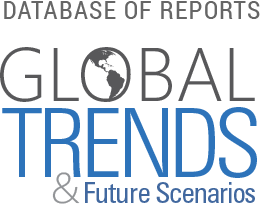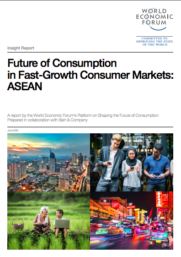
Future of Consumption in Fast-Growth Consumer Markets: ASEAN

As this report is being published, the world is going through unprecedented times. COVID-19, a term that did not exist when this study was being undertaken over 2019, is now ubiquitous, even though the scale and nature of its global impact will not be known for months to come. As of the second quarter of 2020, a third of the global population has been under a lockdown, with over 200 countries affected by health and economic burdens in diverse ways. Businesses, governments and citizens across the world want to leave the humanitarian and economic crisis behind as soon as possible. To successfully navigate through the COVID crisis and a post-COVID world, a premium will be placed on innovation, the willingness of organizations to disrupt themselves, and active collaboration. In the context of this seismic change, the World Economic Forum Platform for Shaping the Future of Consumption aims to accelerate the responsible transformation of the consumption landscape by enabling consumer well-being, environmental sustainability, inclusive growth models, and trust and transparency among all stakeholders. The mission and transformation goals of the Future of Consumption platform developed three years ago are now more relevant than ever to ensure positive benefits for business and society, across developed and emerging markets. It is an imperative that we advance progress with speed to build a prosperous future for all. In a post-COVID era over the next decade, accelerated shifts in global forces, more than 1 billion first-time consumers and the Fourth Industrial Revolution will continue to change the landscape of consumption in the fast-growth consumer markets of China, India and the ASEAN region. Both business and political leaders will be required to adapt their strategies to the changing needs and demands of connected and empowered consumers. The Future of Consumption in Fast-Growth Consumer Markets, a multi-year project, has focused on the evolution of consumption in emerging markets that comprise more than 40% of the world’s population. Critical foresights on drivers of growth and levers of inclusivity can benefit global leaders as they grapple with similar issues.

